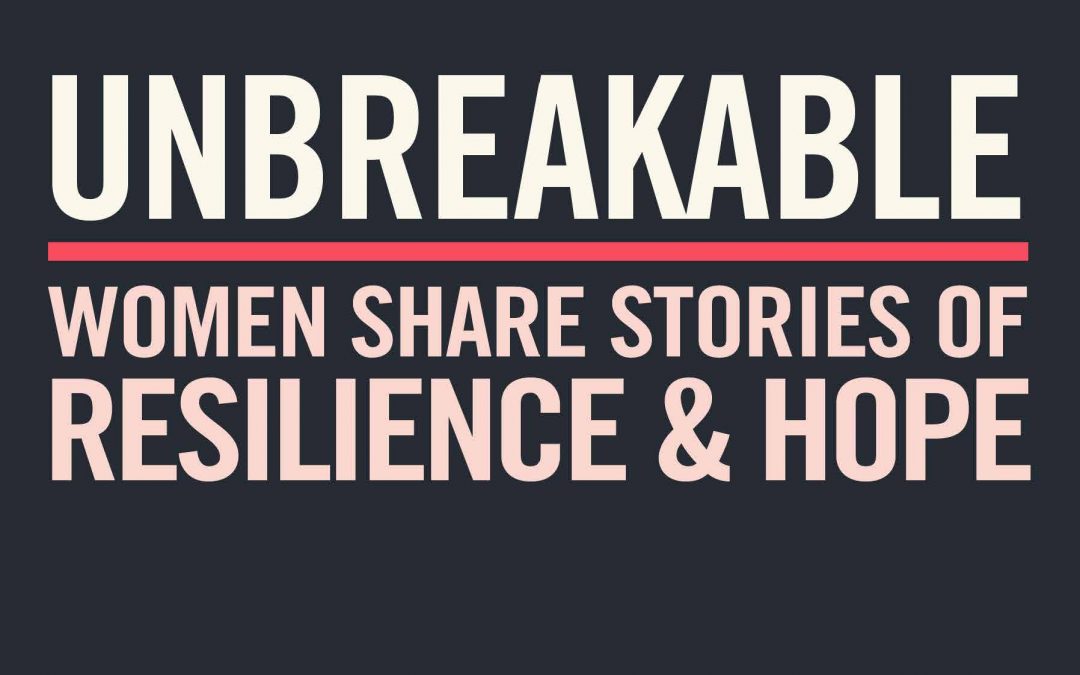Sometimes we read for the enjoyment of the story, sometimes we read to immerse ourselves in the beauty of the words, and sometimes what we are reading feels important and a necessary expansion of our comprehension of the world. Unbreakable: Women Share Stories of Resilience and Hope (UQP 2017), edited by Jane Caro, is a compilation of almost 20 stories told by Australian women about the challenges they have overcome. It falls firmly into that last category – stories we read because they provide a critical message – but some are also written in lilting, poetic language, and many feature gripping ‘plots’. In these honest, straightforward accounts, the well-known women – activists, feminists, journalists, writers, commentators, academics, businesswomen, advocates, indigenous and migrant, gay and straight, lovers and mothers and friends – recount personal stories of sexual assault, miscarriage, abortion, sexism, racism, violence and depression. But these are not accounts of victimhood and loss; rather each is a triumph of survival, a celebration of the fight, recognition of how far we have come as individuals and as a society, and how strong we can be when we support each other and demand to be heard. These are women who, for various reasons, have experienced terrible situations, but who have emerged stronger and more determined than ever to have their voices heard, and to encourage others to do the same. It is indeed a story of resilience and hope.
The book is edited and introduced by Jane Caro, with a foreword by Tanya Plibersek, and includes contributions by Nina Funnell, Tracey Spicer, Kathy Lette, Kerryn Goldsworthy, Mariam Veiszadeh and Susan Wyndham, to name a few. Van Badham’s story reads as engaging literary fiction, except of course that it is true. Rebecca Lim’s essay on intersectionality and privilege is incredibly informative. Andie Fox writes about playfulness and optimism.
In writing about their trauma, and more importantly how they have coped with traumatic events, these women help to open up the conversation about the powerlessness women often experience, and how best to move above it. Some of the stories tell of graphic sexual violations, and our tendency to minimise or excuse the behaviour because we are ingrained to be ‘good girls’. Some authors tell of the wonderful men (and women) in their lives who have helped them navigate the appalling behaviour of others. Some discuss the private pain of miscarriage, infertility and abortion. Some explore childhoods marred by neglect or abuse, and what that meant as they grew older. Many talk about shame, humiliation, degradation, grief, injustice and low self-esteem. Quite a few highlight the abuses of people in positions of power – doctors, teachers, psychologists. Nearly all of the stories feature perpetrators who – in different circumstances – come across as quite harmless and respectable; the stories examine the paradox of very ordinary-seeming individuals who are capable of monstrous acts. All describe the feelings of dread and fear that their experiences have fuelled, and how that has changed how they subsequently go about their daily lives. All but one of the authors writes under her own name – a courageous act that screams ‘We will not be silent! We will be heard!’
I really got a lot out of this book. It is informative, engaging, confronting, visceral and blunt. You could not read these stories and remain unmoved. Each allows you to look, briefly, through the eyes of another woman’s experience, to see how it was for her then, and what that has meant for her future. These women might all be well-known and successful, but beneath that, they are ordinary women from ordinary backgrounds who have faced extraordinary challenges. And most importantly, they have not only survived, but flourished and grown stronger, and they now champion the rights of other women who follow.

